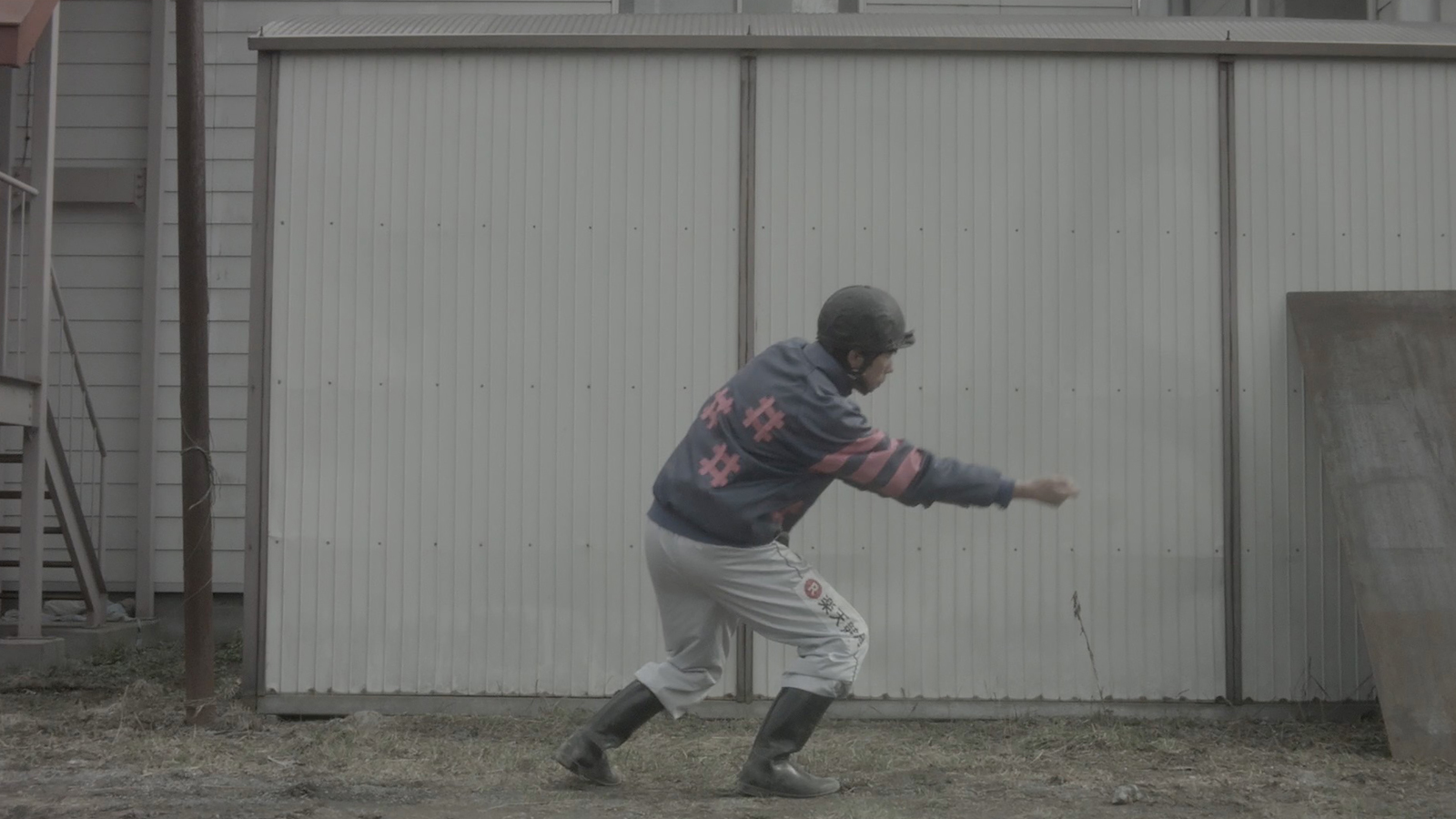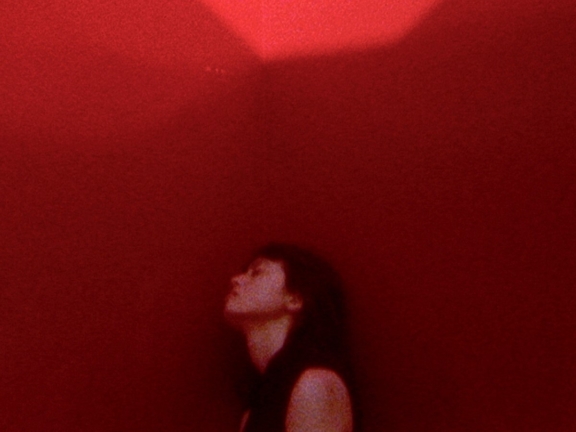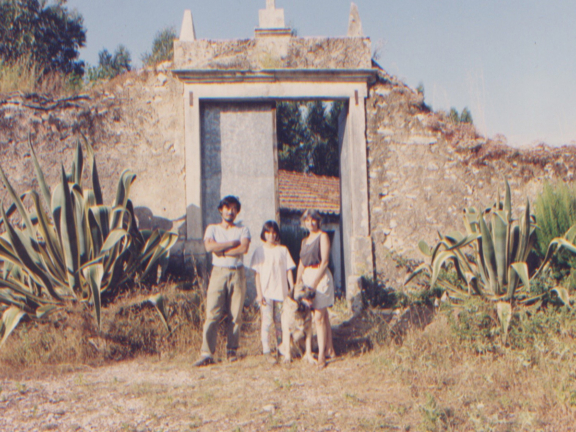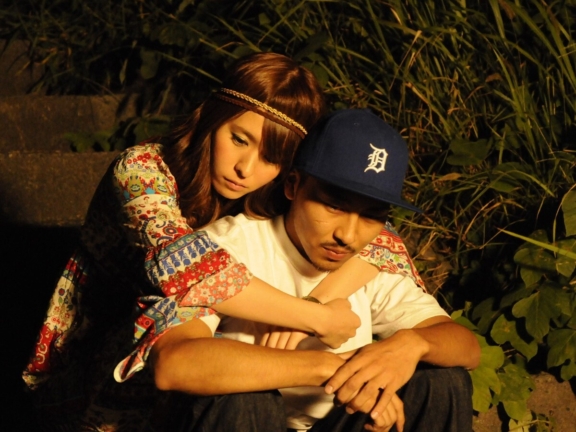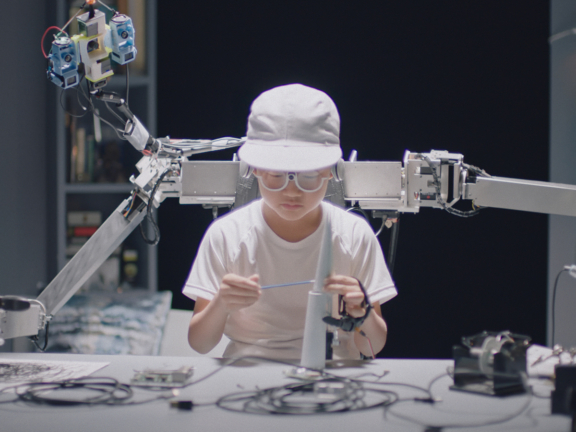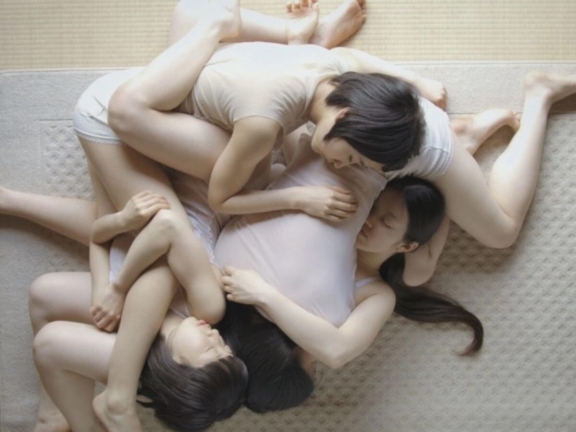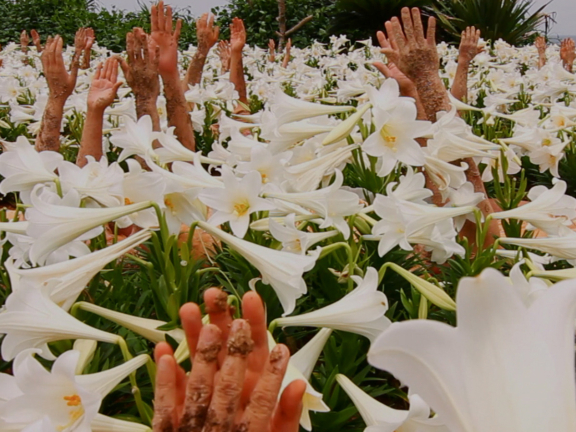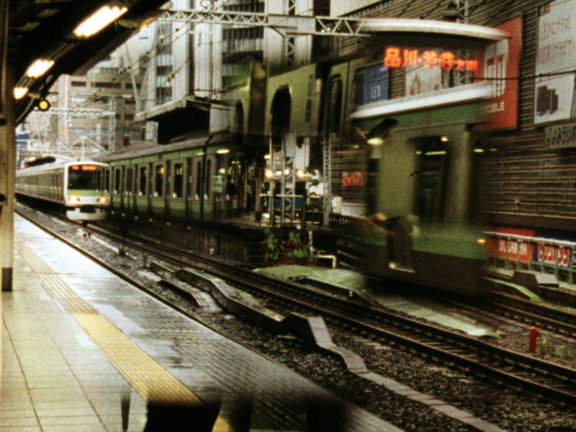
Artist talk with Julian Ross
Films by Chikako Yamashiro and Yu Araki & Daniel Jacoby
Event Slider
Date
- / Cancelled / Sold out
Location
Studio Centro de Arte Moderna GulbenkianConversation in English with simultaneous translation into Portuguese.
Pricing
10% – Cartão Gulbenkian
Moderated by film programme curator Julian Ross, the conversation will be preceded by a selection of their works and will address the joys and challenges of making film and video in Japan.
Offering a glimpse into the exhilarating world of Japanese artists’ moving image, ‘Engawa Films’ seeks to stake a place for its existence in Japanese contemporary art and cinema.
'Chinbin Western, Representation of the Family', by Chikako Yamashiro
Japan, 2019, 32’
In Japanese with Portuguese subtitles
The story centres around two families in Henoko, Nago city in Okinawa, Japan, where plans for construction of a new US military base are ongoing, yet unsettled and in an unstable stage. The complicated feelings of two families in the area are depicted.
The story goes around two families living in Buma, a small village in Okinawa, remained on the bottom of a desertifying crushed stone mountain.
One family of young couple is working on mining of earth and sand. They know that the job chosen for their livings is “digging” their beloved home and the earth and sand are used to reclaim land in the sea for construction of a new US military base, pushed by the strong policy by the Japanese government. Yet, they are looking away from the reality, keeping their immediate happiness with two children; the husband sings opera and the wife sings Ryuka (traditional Okinawan song).
While, another narrative of the other family, a grandfather and his granddaughter goes on. There is a rocky utaki (sanctuary) called tenbune (heaven's boat) halfway up the mountain crushed by the mining, which is shaped like a ship believed to have saved the ancestors of those families from sea distress in the ancient times. The girl notices that signs of "lost" approaching the village as the important incense burner (worshiping God and ancestral spirit) has been lost from the utaki. The girl tells the young wife in the other family that the ancestor’s voice is saying, “The sea has protected us for hundreds of years”, and the wife gradually breaks her mental balance.
The village Buma does not fit for agriculture because of their harsh soil with hard limestone. So most of the people left there with the modernization, selling their barren lands to a mining company. Other people who keep living in the village, not selling their lands, have no choice but to do mining-related work. They stay there, involved in the loss of the village, and only stare at the disappearing home.
'Border', by Chikako Yamashiro
Japan, 2002, 8’30’’
Film without dialogues
Blue skies, azure seas: a typical Okinawan landscape. A woman in black (Yamashiro) dances with single-minded intensity before a grave. Eventually her steps lead her away from the grave and along the US military base fence strung across the island. Having learned of the unhealed wounds affecting the island of her birth, and the people who live there, everyday landscapes now take on a different meaning. Beyond the end of the fence she follows as if tracing a scar with her finger, lay a vast expanse of wild, sparkling sea... A video shot almost by feel, as Yamashiro attempts to pin down the true nature of the doubt and disease she harbours in everyday life, Border ends on the beach at Henoko in Nago, a location rocked by controversy over construction of a new American base.
Credits
Director and Cast
Chikako Yamashiro
Photography
Atsushi Hoshino
Editing
Chikako Yamashiro
Atsushi Hoshino
'Mountain Plain Mountain', by Daniel Jacoby & Yu Araki
Spain, Japan, Netherlands, 2018, 21’
Documentary
In Japanese with Portuguese subtitles
‘Mountain Plain Mountain’ was shot in Obihiro (Japan), at the last standing venue to host a rare kind of draft horse races known as Ban'ei. Putting together a mix of motionless, contemplative shots and hard-edge, rhythmical, gibberish-rich montages, the slowness of these bizarre races is turned inside out. The track's topography, poetically described by a veteran trainer as "a small mountain, a plain, and a big mountain" is what informs the overall timeline of the film.
Credits
Directors
Daniel Jacoby
Yu Araki
With
Yoshiyuki Hattori
Kurando Funayama
Tetsuya Sato
Music
Liisa Hirsch
Vocals
Matsuritaro
Color grade
Ludovic Roussaux at Okay Studio
Audio mix
Takashi Kataoka
Camera, sound and editing
Yu Araki and Daniel Jacoby
Commissioned by
Fundació Joan Miró
Support
Arts Council Tokyo
Mondriaan Fund
Additional support
Jan van Eyck Academie
Engawa – A Season of Contemporary Art from Japan
‘Engawa’ is a programming that brings to Lisbon a set of creators from Japan and the Japanese diaspora, many of them for the first time in Portugal. More info
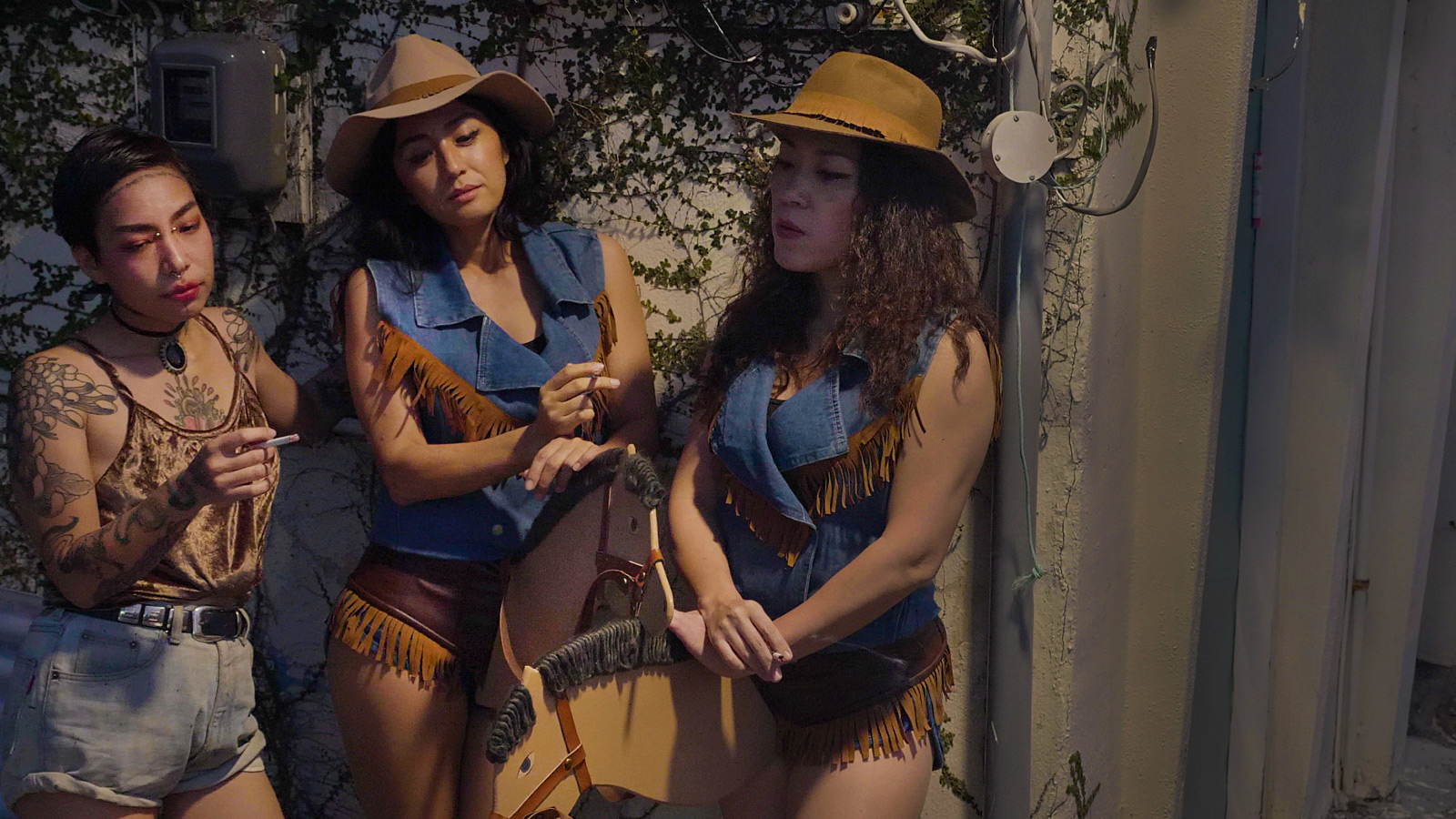
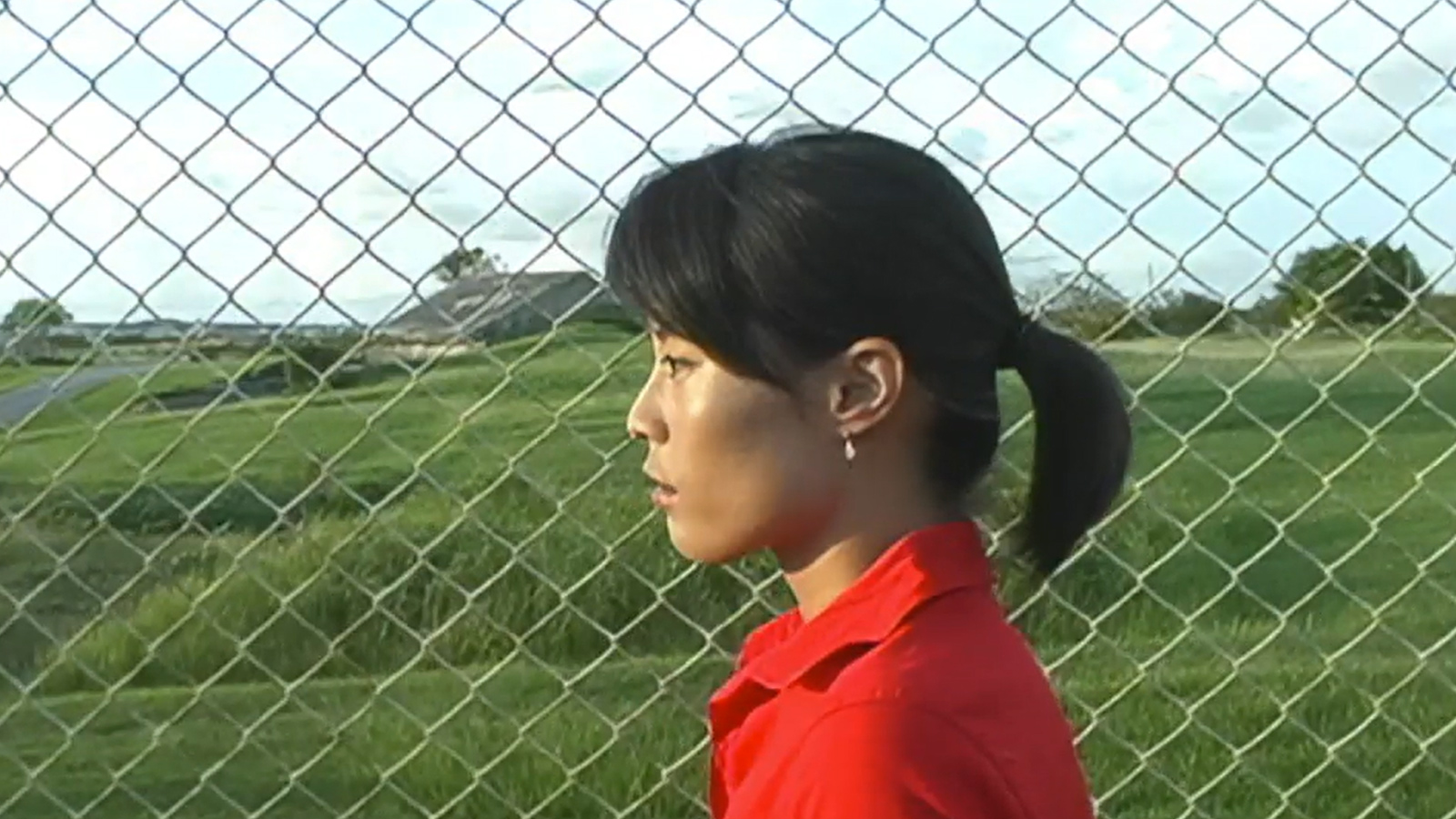
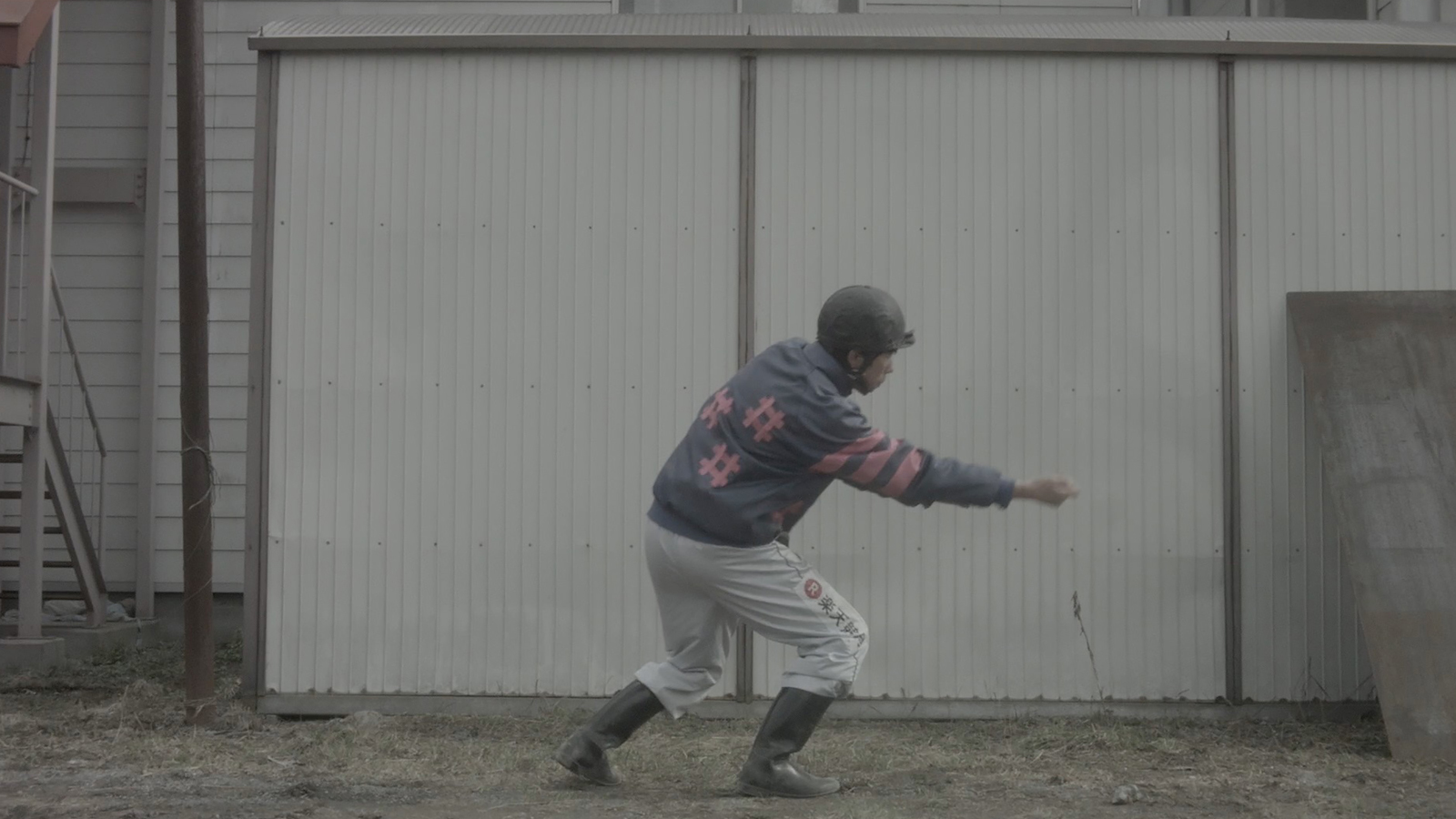
Biographies
-
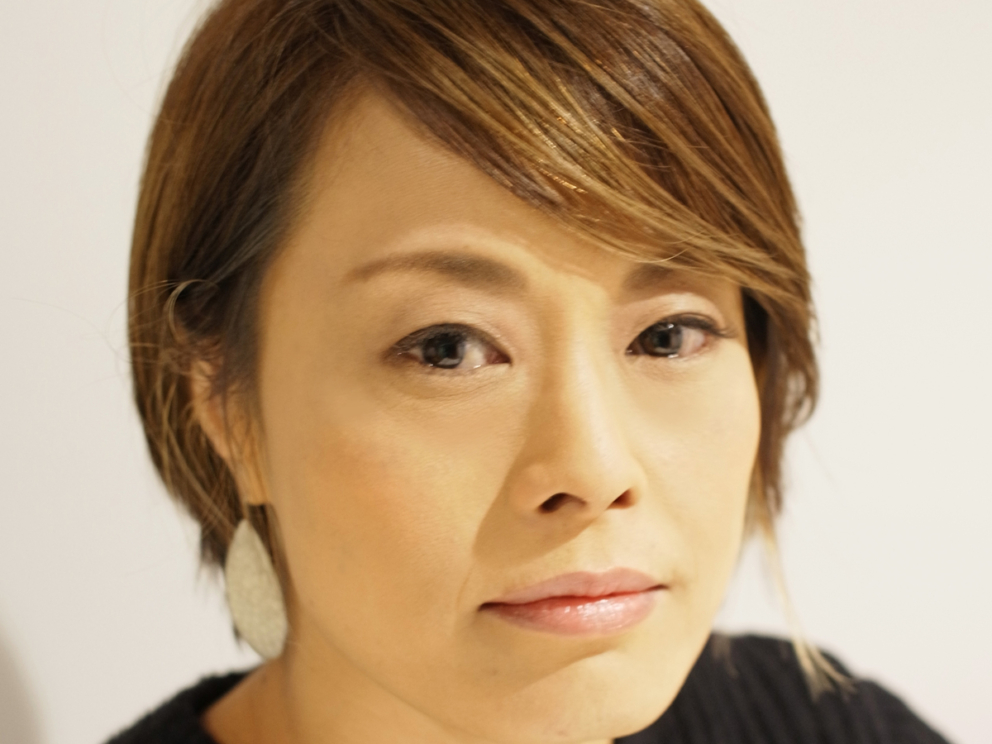
Chikako Yamashiro
Chikako Yamashiro (b. Okinawa, 1976) works in photography, video, and performance to create visual investigations into the history, politics, and culture of her homeland. Particularly, she explores themes related to the terrible civilian casualties incurred on the ground in Okinawa during World War II and the on-going troubles surrounding the U.S. military presence there. Her work has been presented at the National Museum of Modern Art (Tokyo), the Mori Art Museum (Tokyo), Jeju Museum of Art (South Korea) and the Contemporary Jewish Museum (San Francisco), among others. Participating film festivals include the Festival Film Dokumenter (FFD), in Yogyakarta (2017) and the International Short Film Festival Oberhausen (2018), where she was awarded the ZONTA Prize.
-
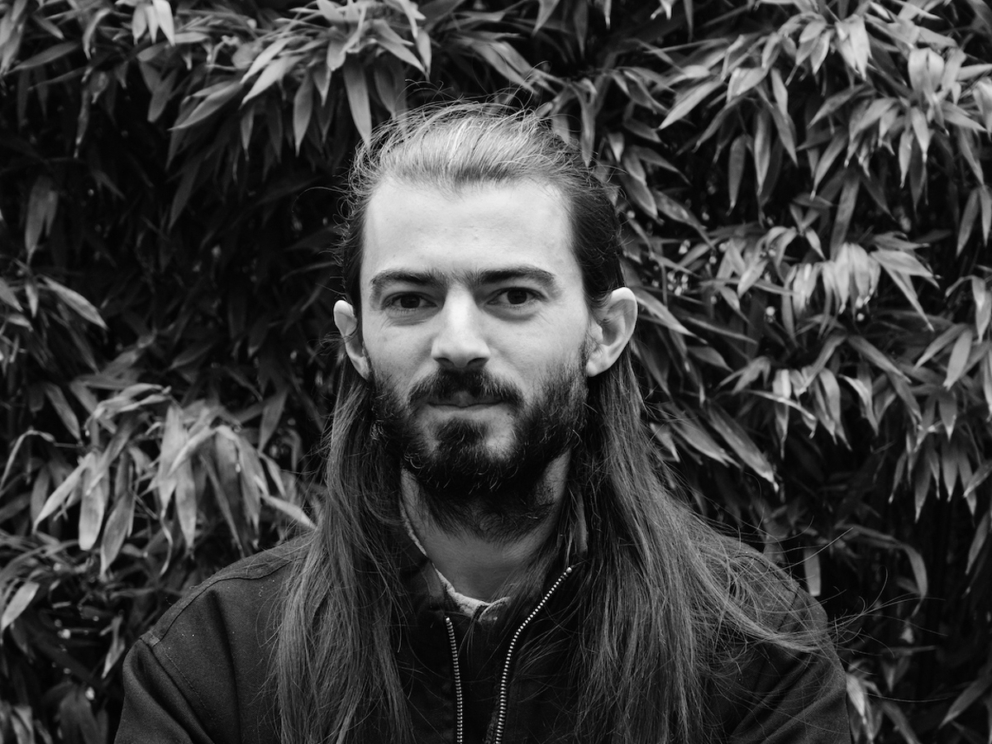
Daniel Jacoby
Daniel Jacoby (Lima, Peru, 1985) is a visual artist and filmmaker. His interest in the human condition has lead him to eccentric characters, places and stories, which he strives to approach from inventively tangential points of view. With a recurring use of abstraction, the result tends to be a personal and subjective exploration of topics like outsideness, belonging, loneliness, friendship, desire and spirituality. His films have won awards at the International Film Festival Rotterdam, Videoex, Filmadrid, Curtocircuito and Lima Independiente, and have been screened at MoMA Doc Fortnight, Sheffield Doc/Fest and Kurzfilmtage Oberhausen. His work has also been part of exhibitions at EYE Filmmuseum (Amsterdam), Fundació Joan Miró (Barcelona) and Palais de Tokyo (Paris), among other.
-
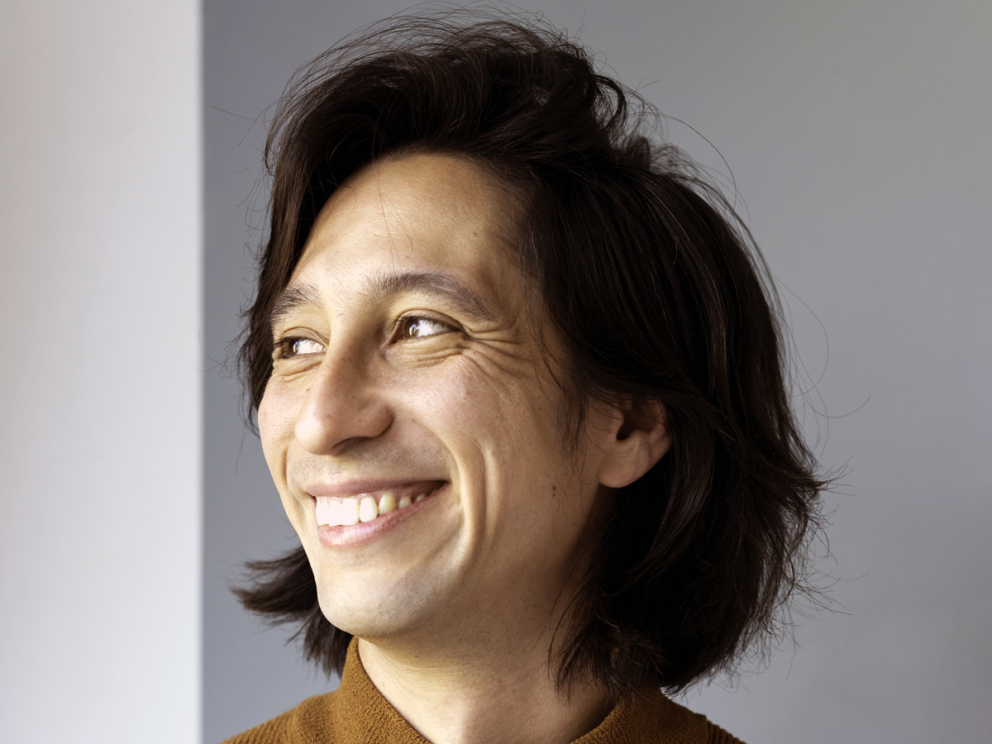
Julian Ross
Julian Ross is a British-Japanese researcher, curator and writer. He is co-programmer of Doc Fortnight at The Museum of Modern Art (MoMA), of the 69th Flaherty Seminar, and programme advisor at IDFA. His curatorial work has been presented at Tate Modern, Eye Filmmuseum, Harvard Film Archive and British Film Institute. He is Assistant Professor at Leiden University Centre for the Arts in Society, and an editorial board member of Collaborative Cataloging Japan, a non-profit organisation dedicated to preserving the legacy of Japanese experimental moving image.
-
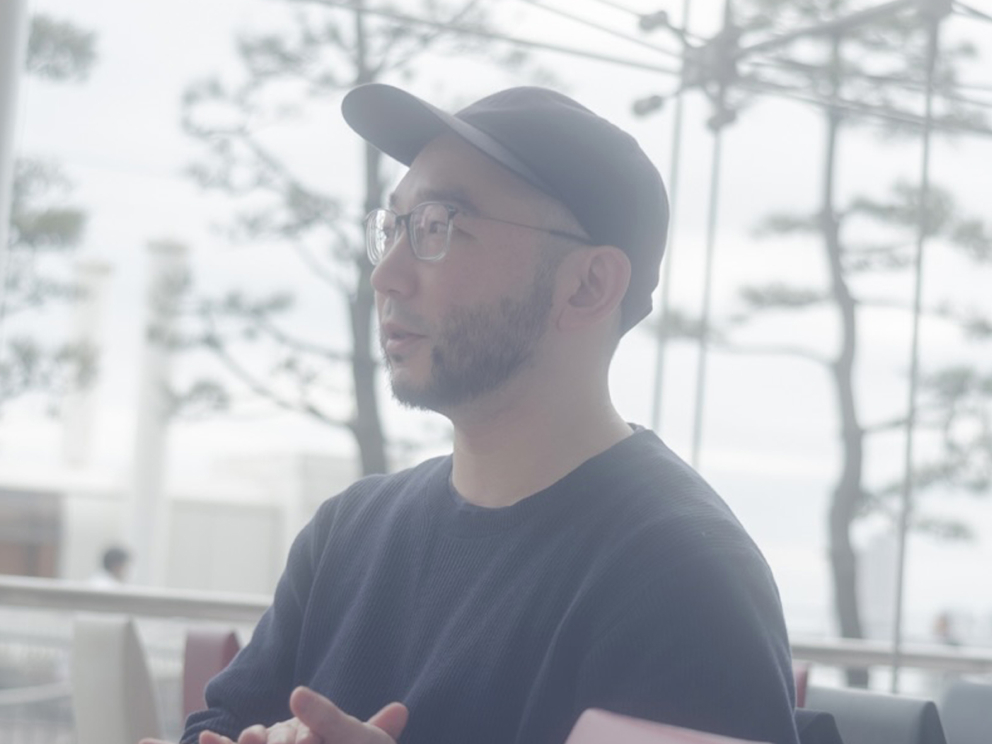
Yu Araki
Yu Araki (Yamagata City, Japan, 1985) received his Bachelor of Fine Arts in Sculpture from Sam Fox School of Design & Visual Arts at Washington University in St. Louis, U.S.A. in 2007, and completed his Master of Film and New Media Studies from Tokyo University of the Arts in 2010. In 2013, he was selected to participate in Tacita Dean Workshop hosted by Fundación Botín in Santander, Spain. During 2017-8, he was a guest resident at Asia Culture Center in Gwangju, South Korea, and Rijksakademie van beeldende kunsten in Amsterdam, the Netherlands. In 2023, his commissioned project received the Special Award at Yebisu International Festival for Art & Alternative Visions 2023 in Tokyo, Japan.
Programme
17:30 / Introduction
17:40 / Film 'Chinbin Western, Representation of the Family', by Chikako Yamashiro (32')
18:12 / Film 'Border', by Chikako Yamashiro (8'30'')
18:21 / Film 'Mountain Plain Mountain', by Daniel Jacoby & Yu Araki (21')
18:42 / Talk
19:22 / Q&A
Credits
Main image
Yu Araki & Daniel Jacoby, 'Mountain Plain Mountain', 2018. Image courtesy of the artists and MUJIN-TO Production, Tokyo; Maisterravalbuena, Madrid; Ciaccia Levi, Paris; Crisis, Lima.
Curatorship
Julian Ross
Partnership
Collaborator
The Calouste Gulbenkian Foundation reserves the right to collect and keep records of images, sounds and voice for the diffusion and preservation of the memory of its cultural and artistic activity. For further information, please contact us through the Information Request form.
